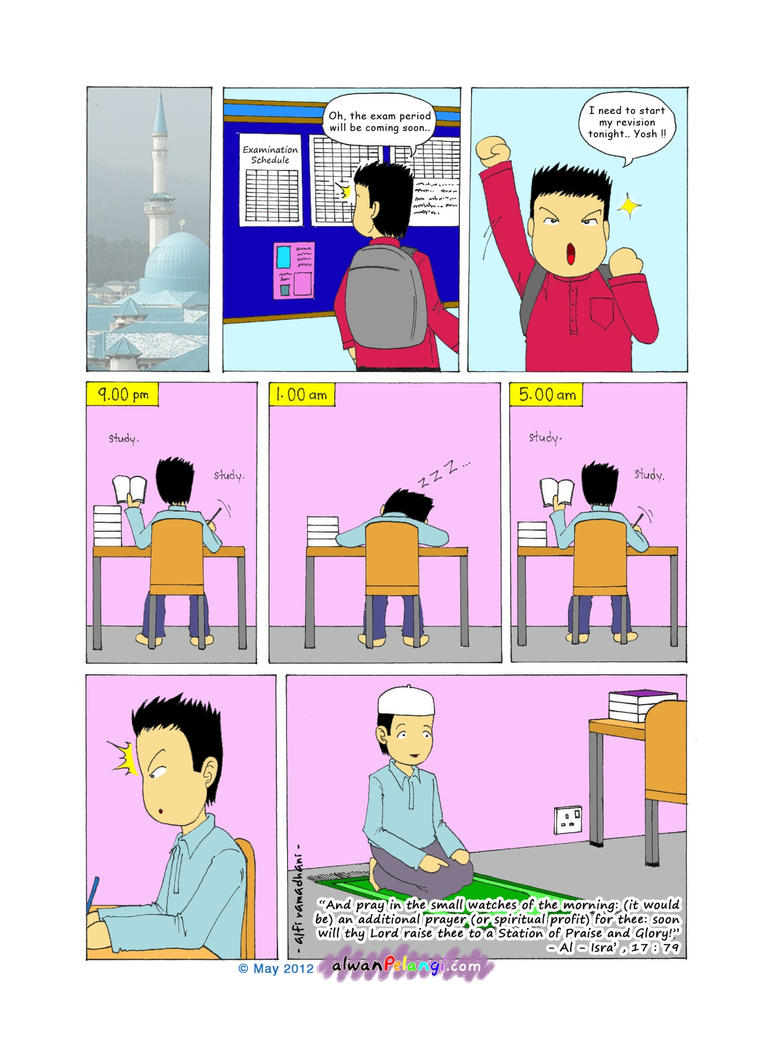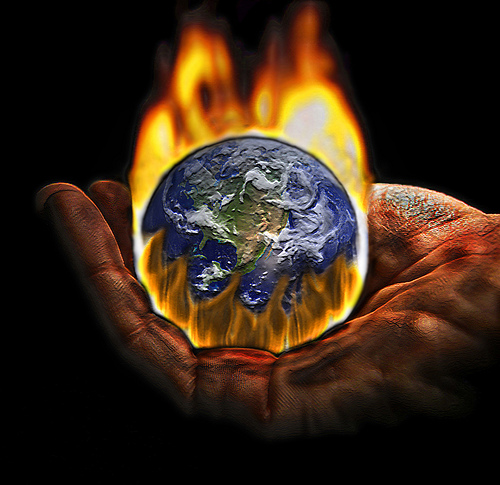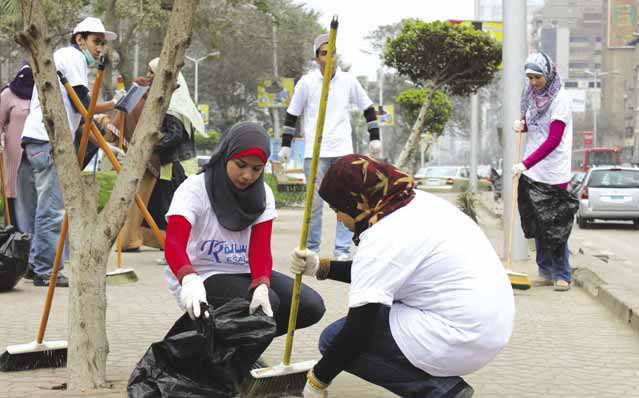1. PerformTahajjud Prayer
Tahajjud prayer is considered the most
significant prayer after the fardhu prayer. Allah The Almighty increase the
rank of the person who wakes up at the middle of the night and perform
tahajjud.
“And pray in the small watches of the morning: (it would be) an
additional prayer (or spiritual profit) for thee: soon will thy Lord raise thee
to a Station of Praise and Glory!”
(Al-Israa': 79)
By performing tahajjud prayer,
one gets to become closer to Allah and Allah will love him more just like the
Prophet. It can be done whether, 2, 4, 8, and not restricted to any rakaat and
better to be done at home rather than in the mosque and must be ended with a 3
rakaat withir prayer.
And they who pass the night prostrating themselves before their Lord and
standing.(Al-Furqan 25:64)
Last but not least, tahajjud prayer is
most beneficial and being practised by the Prophet regularly in accordance to
the hadith narrated by Salman Al-Farsi.
“Observe the night
Prayer; it was the practice of the righteous before you and it brings you
closer to your Lord and it is penance for evil deeds and erases the sins and
repels disease from the body.” (At-Tabarani)
2. Read and learn Al-Quran
Reading the Qur'an before sunrise before the eyes get to see the world
would be good; however it should consider reading the Qur'an with understanding
in advance. Quran should be learnt systematically, and knowing its meaning and
content will lead to better comprehension that may lead to the possession of wisdom.
” Those were some of the prophets on whom Allah did bestow His Grace, -
of the posterity of Adam, and of those who We carried (in the Ark) with Noah,
and of the posterity of Abraham and Israel of those whom We guided and chose.
Whenever the Signs of ((Allah)) Most Gracious were rehearsed to them, they
would fall down in prostrate adoration and in tears.” (Maryam:58)
Therefore, as a true Muslim, Al-Quran is not just to be read but
as well to be understood, memorised and practised in everyday life as it
contains all the teaching of Islam. Al-Quran also reacts as the guidance to all
Muslims hence it contains wisdom thus by understanding it, we can really
practise what is said in the Holy Book. 'Uthman bin 'Affan (May Allah be
pleased with him) also reported:
The Messenger of Allah said, "The best amongst you is the one who
learns the Qur'an and teaches it.
3. Pray Subuh prayer congregationally at mosque
Subuh prayer is the main prayer
as it was the first prayer that was fixed to two rakaat since the very
beginning. The calls for prayer (adhan) for Subuh also different from other
adhans to show the importance of this prayer. Hence, it is crucial to pray
Subuh prayer congregationally as it is the hardest things to do. Therefore, The
Messenger of Allah SAW laid great
emphasis on the sunnah prayer of Fajr, saying,
"It is more superior than the world and everything within it."
(Sahih Muslim 1:151)
"When you are with them, and stand to lead them in salat, Let one
party of them stand up (in salaf) with you. Taking their arms with them: When
they finish their prostrations, let them take their position in the rear, and
let the other party come up which has not yet established salat- and let them
establish salat with you."(An-Nisa': 102)
4. Perform Dhuha prayer
Dhuha prayer is an act of Sunnah
(reported from the Prophet) and its minimum is two Rak`ahs and it has no
maximum limit. However, it is preferable not to exceed eight Rakaat and to say
Taslim after each pair of Rak`ahs. It is said in a hadith,
"Who did 2 rakaats of Dhuha prayer - he will not be included in
a group of people who forget. Who did 4 rakaats of Dhuha prayer - he is
included in a group of people who worship Allah without doubt. Who pray Dhuha 6
rakaats- on that day all their needs are going to be fulfilled by Allah. Who
pray Dhuha 8 rakaats - then Allah Almighty acknowledged him to belong to a
group that prostrate and spend time to worship Allah. And, who does 12 rakaats
Dhuha prayer - then Allah Almighty grant him a beautiful castle in paradise.
There will not be in a day and night except Allah bestows boons to his servant
"(Narrated by Tabarani and Abu Dawud).
Dhuha prayer is also related to other
excellence. Ahmad, Muslim, and Abu Dawud narrated that,
Abu Zharr reports that the Prophet sallallahu aleihi wasallam said:
"Charity is required from every part of your body daily. Every saying of
'Glory be to Allah' is charity. Every saying of 'Praise be to Allah' is
charity. Every saying of 'There is no God but Allah' is charity. Every saying of
'Allah is the Greatest' is charity. Ordering the good is charity. Eradicating
the evil is charity. And what suffices for that (as a charity) are the two
rak'at of duha."
5. Do dzikir all the time
By saying the dzikir all the time,
Allah will take away our worries and problems. By doing dzikr, we seek
forgiveness from Allah and ask for mercy from Allah as well as to protect us
from mischievous. By means, to say dzikr is to remember Allah as Allah said in
the Al-Quran,
“Then do ye remember Me; I will remember you. Be grateful to Me, and
reject not Faith.” (Baqarah : 152)
1. Rasulullah SAW didn't drink milk while he ate beef, chicken or fish
Nabi Muhammad SAW once cautioned his companions as not to mix fish and milk in a dish. This fact is actually proven by science where it was found that chicken contains positive ions while seafood or fish contains negative ions. When these two ions meet, they will create a biochemical reaction whih can lead to stomach pain or ulcers.
2. Rasulullah SAW forbided drinking milk with vinegar
Vinegar is acidic and slows down the rate of protein absorption in the intestines. Body growth can be stunt because of lack of protein
3. Avoid eating acidic fruits with milk.
For example, oranges or lemons. This is just the same as drinking milk with vinegar
4. Rasulullah SAW ate fruits before having meals
Eat fruits at least half an hour before we have heavy meals. Fruits naturally are high in fibre. When we eat fruits before our meals, automatically our stomach will be full with fibre. Thus we eat less rice or grains, which if are not burned later will transform into fat.
5. Nabi Muhamad SAW loved to eat cereals or grains such as Habbatus Sawda, barley and oats.
In a hadith narrated by Bukhari and Muslim, Prophet Muhammad SAW said:
“Al-Habbah Al-Sawda’ is the cure for every disease except death”.
Dietry based on cereals and grains are nutritious because they are high in phytonutrients. Phytonutrients are powerful antioxidants that increase the body's defense against viruses , good for the heart, prevents diabetes and obesity
Al-Hakam Bin Uyainah said:
“Rasulullah SAW won't sleep at night except after he has eaten Habbatus Sawda and honey. That is his practice every morning for energy, memorisation and to prevent asthma"
BASIC ISLAMIC HYGIENE
1. Cleaning One’s Teeth: Using the siwaak
is a highly recommended by the Sunnah. There are many ḥaadeeth that
mention the Messenger of Allaah (salallaahu ‘alayhi wa sallam) encouraged the
use of the siwaak. The siwaak cleanses the mouth
and removes foul odors.
2. Moisturizing One’s Hair:
It is recommended to moisturize one’s hair every other day, just as the
Messenger (salallaahu ‘alayhi wa sallam) would do.
3. Looking at One’s Self
in the Mirror: It is recommended to look at one’s self in the mirror when
he finishes cleaning and beautifying himself. One looks in the mirror because
there is a possibility that something needs to be adjusted or tweaked. Thus,
one looks in the mirror before going out to meet people. This is the Sunnah.
The Messenger of Allah (salallaahu ‘alayhi wa sallam) used to look in the
mirror.
4. Using Delightful
Fragrances : This is done because all of the Prophets did so. It is
also done so that a person’s scent is pleasant, not offensive. So, he applies
fragrances when he generally goes to prayer, and specifically when he goes to
Friday prayer (al-Jumu’ah). He also uses delightful fragrances in the
circles of remembrance and when he goes to gatherings.
Humanity lives today in a “global
village,” where no people or nation can live in isolation from and indifferent
to what goes on elsewhere. Our world is so interdependent and so interrelated
that peaceful dialogue has become an imperative. In spite of the general
erosion of commitment to “religion,” however interpreted or misinterpreted,
religion still plays a pivotal role in shaping people’s attitudes and
influencing their behaviour.
حَدَّثَنَا
هَنَّادٌ، حَدَّثَنَا أَبُو الأَحْوَصِ، عَنْ أَبِي إِسْحَاقَ، عَنِ الْحَارِثِ،
عَنْ عَلِيٍّ، قَالَ قَالَ رَسُولُ اللَّهِ صلى الله عليه وسلم " لِلْمُسْلِمِ عَلَى الْمُسْلِمِ
سِتٌّ بِالْمَعْرُوفِ يُسَلِّمُ عَلَيْهِ إِذَا لَقِيَهُ وَيُجِيبُهُ إِذَا
دَعَاهُ وَيُشَمِّتُهُ إِذَا عَطَسَ وَيَعُودُهُ إِذَا مَرِضَ وَيَتْبَعُ
جَنَازَتَهُ إِذَا مَاتَ وَيُحِبُّ لَهُ مَا يُحِبُّ لِنَفْسِهِ " . وَفِي الْبَابِ عَنْ أَبِي
هُرَيْرَةَ وَأَبِي أَيُّوبَ وَالْبَرَاءِ وَأَبِي مَسْعُودٍ . قَالَ أَبُو
عِيسَى هَذَا حَدِيثٌ حَسَنٌ وَقَدْ رُوِيَ مِنْ غَيْرِ وَجْهٍ عَنِ النَّبِيِّ
صلى الله عليه وسلم . وَقَدْ تَكَلَّمَ بَعْضُهُمْ فِي الْحَارِثِ الأَعْوَرِ
Narrated 'Ali:
that the
Messenger of Allah said: "There are six courtesies due from a Muslim to
another Muslim: To give Salam to him when he meets him, to accept his
invitation when he invites him, to reply to him when he sneezes, to visit him
when he is ill, to follow his funeral when he dies, and to love for him what he
loves for himself."
1.
Having good social interaction.
Many people find it hard to open their
hearts and share their feelings and problems. However, social interaction where
people can talk out their problems and feel accepted and understood. When others
speak kindly to you, encourages you, gives you an unexpected and genuine
compliment, or tells you that he or she cares about you made you feel
appreciated.
حَدَّثَنَا عُثْمَانُ، وَأَبُو بَكْرٍ ابْنَا أَبِي شَيْبَةَ
قَالاَ حَدَّثَنَا وَكِيعٌ، عَنْ سُفْيَانَ، عَنْ أُسَامَةَ، عَنِ الزُّهْرِيِّ، عَنْ
عُرْوَةَ، عَنْ عَائِشَةَ، رَحِمَهَا اللَّهُ قَالَتْ كَانَ كَلاَمُ رَسُولِ اللَّهِ
صلى الله عليه وسلم كَلاَمًا فَصْلاً يَفْهَمُهُ كُلُّ مَنْ سَمِعَهُ .
Narrated
Aisha, Ummul Mu'minin:
The
Messenger of Allah (ﷺ) spoke in a distinct
manner so that anyone who listened to him could understand it.
2. Respecting
others religion, opinion and culture.
Allah (SWT) says:
﴿لَا يَنْهَاكُمُ اللَّهُ عَنِ الَّذِينَ لَمْ
يُقَاتِلُوكُمْ فِي الدِّينِ وَلَمْ يُخْرِجُوكُم مِّن دِيَارِكُمْ أَن
تَبَرُّوهُمْ وَتُقْسِطُوا إِلَيْهِمْ إِنَّ اللَّهَ يُحِبُّ الْمُقْسِطِينَ *
إِنَّمَا يَنْهَاكُمُ اللَّهُ عَنِ الَّذِينَ قَاتَلُوكُمْ فِي الدِّينِ
وَأَخْرَجُوكُم مِّن دِيَارِكُمْ وَظَاهَرُوا عَلَى إِخْرَاجِكُمْ أَن
تَوَلَّوْهُمْ وَمَن يَتَوَلَّهُمْ فَأُوْلَئِكَ هُمُ الظَّالِمُونَ﴾
(الممتحنة: 8-9)
“Allah
does not forbid you from those who do not fight you because of religion and do
not expel you from your homes - from being righteous toward them and acting
justly toward them. Indeed, Allah loves those who act justly. Allah only
forbids you from those who fight you because of religion and expel you from
your homes and aid in your expulsion - [forbids] that you make allies of them.
And whoever makes allies of them, then it is those who are the wrongdoers.”
(Al-Mumtaĥanah: 8-9)
3. Be kind
Relatives have specific rights entitling
them to special attention, visits and support. A wealthier Muslim is obliged to
assist his or her relatives, with priority given to the nearest in kin, and
then in order of nearness in relationship. A Muslim supports his brothers and relatives
in times of need and shares their concerns. Islam encourages a Muslim to be
kind to his relatives even when they are unkind to him, and asks him to
continue his relations even when they cut them off.
حَدَّثَنِي
عُبَيْدُ اللَّهِ بْنُ عُمَرَ الْقَوَارِيرِيُّ، حَدَّثَنَا يَزِيدُ بْنُ
زُرَيْعٍ، عَنْ عُمَرَ بْنِ مُحَمَّدٍ، عَنْ أَبِيهِ، قَالَ سَمِعْتُ ابْنَ
عُمَرَ، يَقُولُ قَالَ رَسُولُ اللَّهِ صلى الله عليه وسلم " مَا زَالَ جِبْرِيلُ يُوصِينِي
بِالْجَارِ حَتَّى ظَنَنْتُ أَنَّهُ سَيُوَرِّثُهُ " .
Ibn
Umar reported Allah's Messenger as saying:
Gabriel
impressed upon me (the kind treatment) towards the neighbour (so much) that I
thought as if he would soon confer upon him the (right) of inheritance.
We often heard of the global crisis
people are facing today; global warming and rapid climate change. Ever wonder why all of these happened? It is all because of the humans’ wrongdoing. As mentioned in the Quran:
"Corruption doth appear on land and sea because of (the evil) which men’s
hands have done, that He may make them taste a part of that which they have
done, in order that they may return". (Quran 30:41)
According to the verse, Allah is giving
us a taste of our own medicine (punishment) so that we may return from the
wrong directions we have taken in life. As the saying, "What you give is what you get". In simpler words, Allah will punish humans for their bad deeds so that humans will realise that they have did something bad and then repent for Allah's forgiveness.
In order to preserve our environment, we need to change our daily practices according to the
sunnah of the Prophet Muhammad. Preserving the nature has positive impacts not just for humans, but
also for the whole ecological system including animals and plants. One of the
significance of maintaining the environment is that sanitary environment
maintains the community.
Hygiene and cleanliness (tahara) is so integral to Islam that it is actually a major sub-branch of Muslim belief. Without physical hygiene, prayers are broken. Without clean facilities pollution ruins cities, and without any effort to improve one's own purity, it becomes more difficult to prevent external corruptions like littering. According to Rasulullah, among the practices we can do in keeping the environment are:
Hygiene and cleanliness (tahara) is so integral to Islam that it is actually a major sub-branch of Muslim belief. Without physical hygiene, prayers are broken. Without clean facilities pollution ruins cities, and without any effort to improve one's own purity, it becomes more difficult to prevent external corruptions like littering. According to Rasulullah, among the practices we can do in keeping the environment are:
1.
Street clean-ups
As narrated by Abu Dharr Al-Ghafari:
"Removing
harmful things from the road is an act of charity (sadaqah)."
From the above narration, it is very
important for us to remove any harmful objects from the road as it might cause
injury to anyone who is using or going to use the road. For example, removing
fallen branches from the middle of the road. This is to allow vehicles to go
through the road safely as well as to avoid any serious accidents.
2.
Planting trees
Some Hadiths of the Prophet connected
with planting trees and protecting them:
“If you have a sapling, if you have the time, be certain to plant it,
even if Doomsday starts to break forth.”
“Whoever reclaims and cultivates dry, barren land will be rewarded by
God for the act. So long as men and animals benefit from it He will record it
for him as almsgiving.”
“Whoever plants a tree, reward will be recorded for him so long as it
produces fruit.”
All of the 3 hadiths emphasized on the
importance of planting trees. Not only it will benefit the one who planted it
(getting Allah’s reward), but it will also benefit animals and other people who
uses the tree as shelter or eat the fruits from the tree.
3.
Consider recycling
and fixing before buying new items
When asked about how the Prophet used to live in his house, the
Prophet's wife, `A'ishah, said that he used to repair his own shoes, sew his
clothes and carry out all such household chores done without complaint or want
for more.
(Authenticated by Al-Albani).
The idea behind this was to show
Muslims that humble tasks were not degrading for God's Prophet. Reusing and
repairing things instead of always buying new is not a sign of poverty.
Instead, they are a sign of power. By performing household duties, the Prophet
was saying we can build foundations on less 'stuff', that we are in control of
what we consume and we don't need more.
 |
| Using container of fruit juice to make a bird feeder |
 |
| Painting an old cabinet to make it look more attractive |
 |
| Fixing a jean's zip instead of buying a new pair |
Subscribe to:
Posts (Atom)













